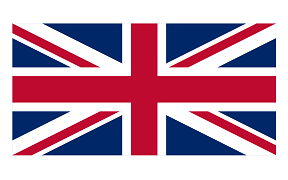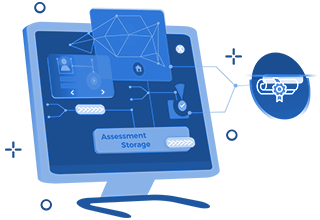Learn about the development of this initiative
 In the fall of 2015, federal, provincial, and territorial governments committed to welcoming and settling 25,000 Syrian refugees in communities across Canada. At the time, WSE, along with other organizations in Canada, began discussing the ramifications that could arise once these newcomers settled and sought recognition of previously completed studies in order to work or undertake further studies in Canada. How would the broad and diverse organizations responsible for assessing and recognizing academic credentials and professional qualifications support refugees? This is especially crucial, as refugees and those in refugee-like situations may not have access to the documentation normally required for these procedures. Standard assessment policies, procedures, and document requirements may require some flexibility in order to provide access to an alternative procedure to applicants in such circumstances.
In the fall of 2015, federal, provincial, and territorial governments committed to welcoming and settling 25,000 Syrian refugees in communities across Canada. At the time, WSE, along with other organizations in Canada, began discussing the ramifications that could arise once these newcomers settled and sought recognition of previously completed studies in order to work or undertake further studies in Canada. How would the broad and diverse organizations responsible for assessing and recognizing academic credentials and professional qualifications support refugees? This is especially crucial, as refugees and those in refugee-like situations may not have access to the documentation normally required for these procedures. Standard assessment policies, procedures, and document requirements may require some flexibility in order to provide access to an alternative procedure to applicants in such circumstances.
In 2016–17, WSE led the Assessing the Qualifications of Refugees initiative:
-
through funding from the Government of Canada's Foreign Credential Recognition Program (FCRP); and
-
under the auspices of the Council of Ministers of Education, Canada (CMEC).
The development was based on:
-
extensive research on other publications and initiatives led by organizations within and outside Canada, to support discussions; and
-
consultations through participants, speakers, and facilitators who participated in its November 2016 workshop, as well as the WSE Committee of provincial and territorial officials from ministries/departments responsible for education in Canada, and the members of WSE's workshop advisory committee. These stakeholders from various regions in Canada, as well as Europe, were mainly working in key sectors:
-
members of the Alliance of Credential Evaluation Services of Canada (ACESC);
-
professional regulatory bodies and apprenticeship authorities;
-
postsecondary educational institutions;
-
government departments and agencies; and
vadditional guest speakers from Canada and Europe.
 This builds on the Pan-Canadian Quality Assurance Framework for the Assessment of International Academic Credentials (QAF), which provides guidance and standards for the fair recognition of academic credentials.
This builds on the Pan-Canadian Quality Assurance Framework for the Assessment of International Academic Credentials (QAF), which provides guidance and standards for the fair recognition of academic credentials.
Get more background information, a workshop summary, and proposed best practices and guidelines by consulting the Best Practices and Guidelines — Final Report.
Workshop — Assessing the Qualifications of Refugees
On November 24 and 25, 2016, WSE held a two-day workshop on assessing the qualifications of refugees in Mississauga, Ontario. It was attended by 93 participants.
WSE recognized that numerous organizations in Canada have considerable experience with alternative approaches to assessing the qualifications of refugees and those without access to verifiable documentation. Many of those organizations presented their work and experience over the two days. As such, the workshop afforded an opportunity to:
-
learn from the experience of organizations across Canada and in Europe; and
-
build on their expertise and insights by having participants collectively provide concrete guidance to organizations performing assessments in order to help them develop policies and practices in accordance with their respective organizations' mandate and purpose.
Outcomes of the initiative
 Discussions at the workshop and additional consultations with key sectors led to the identification and development of best practices and guidelines that can be used by organizations to put in place an alternative qualification-assessment procedure without access to verifiable documentation. These consist of:
Discussions at the workshop and additional consultations with key sectors led to the identification and development of best practices and guidelines that can be used by organizations to put in place an alternative qualification-assessment procedure without access to verifiable documentation. These consist of:
-
five different approaches that may be used, depending on the situation and type of organization: country profile plus comparability statement; background paper; some documentation; some verifiable documentation; testing of skills and competencies;
-
13 recommended best practices and guidelines that are consistent with the Lisbon Recognition Convention (LRC) in the context of international best practices. These are related to: governance; building awareness; eligibility; minimum documentation requirements; translation requirements; use of background paper and sworn affidavits; use of competency-based assessments; use of prior learning assessment and recognition (PLAR); sharing documentation; contacting institutions; transparency and public communications; transparency in the assessment report; and fees; and
-
a practical worksheet developed to support organizations that are thinking of developing new policies or refining existing ones. It is a companion to the 13 recommended best practices and guidelines.
 English
English Français
Français 日本語
日本語 中文
中文 한국어
한국어 Русский
Русский



 In the fall of 2015, federal, provincial, and territorial governments committed to welcoming and settling 25,000 Syrian refugees in communities across Canada. At the time, WSE, along with other organizations in Canada, began discussing the ramifications that could arise once these newcomers settled and sought recognition of previously completed studies in order to work or undertake further studies in Canada. How would the broad and diverse organizations responsible for assessing and recognizing academic credentials and professional qualifications support refugees? This is especially crucial, as refugees and those in refugee-like situations may not have access to the documentation normally required for these procedures. Standard assessment policies, procedures, and document requirements may require some flexibility in order to provide access to an alternative procedure to applicants in such circumstances.
In the fall of 2015, federal, provincial, and territorial governments committed to welcoming and settling 25,000 Syrian refugees in communities across Canada. At the time, WSE, along with other organizations in Canada, began discussing the ramifications that could arise once these newcomers settled and sought recognition of previously completed studies in order to work or undertake further studies in Canada. How would the broad and diverse organizations responsible for assessing and recognizing academic credentials and professional qualifications support refugees? This is especially crucial, as refugees and those in refugee-like situations may not have access to the documentation normally required for these procedures. Standard assessment policies, procedures, and document requirements may require some flexibility in order to provide access to an alternative procedure to applicants in such circumstances.
 This builds on the
This builds on the  Discussions at the workshop and additional consultations with key sectors led to the identification and development of best practices and guidelines that can be used by organizations to put in place an alternative qualification-assessment procedure without access to verifiable documentation. These consist of:
Discussions at the workshop and additional consultations with key sectors led to the identification and development of best practices and guidelines that can be used by organizations to put in place an alternative qualification-assessment procedure without access to verifiable documentation. These consist of:







